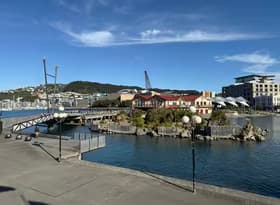Articles
The 2023 Infometrics Creativity Index confirms many of the trends and outcomes of previous years, but with some subtle differences below the surface. The overall importance of the arts and creative sector to the New Zealand economy was unchanged in 2023 from a year ago, with 4.27% of the workforce employed in the sector. Read
Although the top-ranking city in the Infometrics Creativity Index remained the same in 2022, there were some movements further down the ranking as local economies bounced back from the impact of COVID. Read
Younger New Zealanders are, broadly speaking, more highly qualified than those in older age groups. Why is this, and does it matter? Read
The Integrated Data Infrastructure (IDI) is starting to give us deeper insights into the supply of skills in the New Zealand labour market. Here we look at the origin of new entrants into industry workforces. Read
The tech sector is often touted as the next big thing for regional economies, representing a huge opportunity to grow our productivity. The ‘weightless’ nature of tech presents a great opportunity to overcome the tyranny of distance, both within New Zealand and for exporting overseas. Unfortunately for economists, it represents something of a slippery fish, with standard industry and occupation classification systems at times struggling to classify and monitor such a dynamic and evolving sector. Read
AI has begun to be integrated into the workplace. But it is early days. In this article I look at the evidence to date on how AI will change the workplace, which skills AI is likely to automate, and what the limitations of AI are. Read
New Zealand needs more detailed information about the skill needs of each occupation. The Australian Skills Classification (ASC) gives us this. While it has its limitations, it is a vast improvement on what we currently have and will only get better. Read
Regional Skill Leadership Groups (RSLGs) and Workforce Development Councils (WDCs) are tasked with understanding skill needs in their regions and industries, and communicating this back to tertiary education providers to ensure that local education and training provision is shaped to meet those needs. The Australian Skills Classification might help. Read
The disruption caused by the COVID-19 pandemic and the government’s response of closing the borders have led to an incredibly tight labour market over the last year. The record-low unemployment rate of 3.2% has been backed up by a raft of other indicators showing how difficult it is for businesses to attract and retain employees. With living costs surging as well, workers have both the bargaining power and the motivation to demand significant pay increases during 2022. Read








